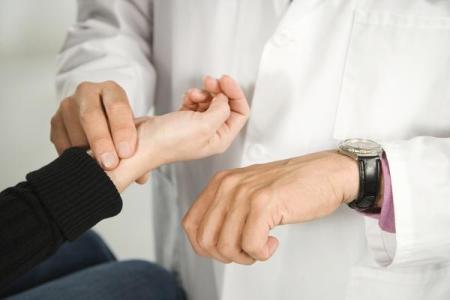Tachycardia: Symptoms, Causes and Treatment
The stress, physical effort or too much caffeine may cause of tachycardia, but if they occur frequently should consult a doctor because it may be a sign of a problem more serious medical condition and requires specific treatment.
Our heart beats at an average rate of between 60 and 100 times per minute, often which in the case of women tends to be higher due to hormonal changes (during the menstrual cycle, for example, may occur arrhythmias). The stress, the consumption of food and stimulants drink (coffee, tea or sugar) a strong emotion, and, even, the lack or excess of exercise may be behind tachycardias.
Table of Contents
Tachycardia: Symptoms
Fatigue, shortness of breath, dizziness, lightheadedness, fainting, and even chest pain are common symptoms of tachycardia. The symptoms that we have to pay attention, especially to reveal the cause of the tachycardia or increased heart rate.
Tachycardia: Causes
As we have noted, the tachycardia may be a sporadic event or, on the contrary, the sign of a problem related to some disease. Among the most common causes of tachycardia include emotional impact (receive good or bad news), excessive exercise, excessive intake of caffeine and alcohol and the consumption of certain drugs (such as antidepressants or bronchodilators). In the case of women during menopause usually increase the predisposition to suffer from tachycardia.
Among the causes associated with frequent tachycardias include those relating to the nervous system and certain diseases. Thus, the stress and anxiety increase the heart rate, which is usually accompanied by fatigue and tightness in the throat. The pulse is also accelerated in cases of fever and anemia, as well as hyperthyroidism.
Tachycardia: treatment
The prevention is essential to avoid tachycardia. When the cause is stress, it is advisable to take a break and relax. Listen to music, close your eyes and imagine a relaxing scene and breathing exercises can be effective in reducing stress. Inhale slowly, and then expire slowly but forcefully.
Walking for 20-30 minutes a day, cycling or swimming are three exercises that help to prevent tachycardias. In some cases, and only under medical prescription, it may be necessary to take the tranquilizing drugs (to control stress and anxiety). In severe cases, the doctor will prescribe a specific drug therapy (beta blockers, propafenone, flecainide). If medications do not have the desired effect, and in extreme cases it may be necessary to use a pacemaker.
Tachycardia: Healthy Tips
There are some gestures or daily habits that can help prevent tachycardia. Thus, for example, it is advisable to avoid sleeping on the left side, to avoid excessive pressure on the heart. Practice sport regularly. Avoid coffee, snuff and alcohol.
